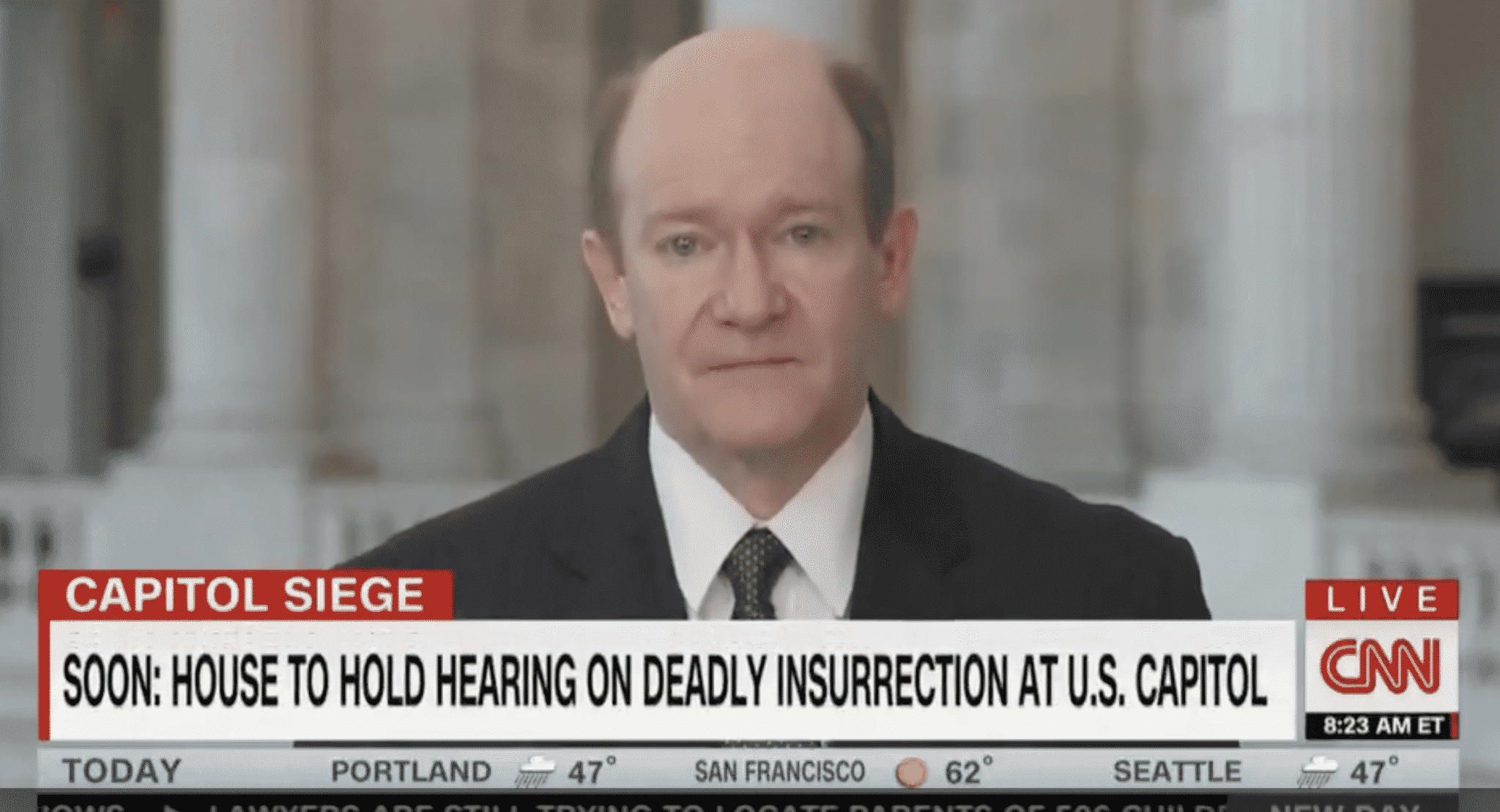Sen. Chris Coons (D-Del.) supports a Jan. 6 commission comprised of an equal number of both Republicans and Democrats.
CNN’s John Berman asked Coons on Thursday how bipartisan the commission should be, and noted House Speaker Nancy Pelosi (D-Calif.) suggested it should be made up of mostly Democrats.
Coons explained the leaders of the 9/11 commission said it was successful because it was “even, it was balanced, and it was led by folks who were well respected and well regarded, who had a reputation for working across the aisle.”
He said it is “important” to have a balanced commission to look into the events leading up to the insurrection and the “baseless theory” suggesting former President Donald Trump won the election.
Watch his remarks below:
Here's Chris Coons saying he thinks any congressional commission into the January 6 insurrection should be equally comprised of Democrats and Republicans pic.twitter.com/f6YtwU5EvY
— Aaron Rupar (@atrupar) February 25, 2021
“It’s going to have to be done by folks who are not currently serving or seeking office, folks who are not politically motivated in how they get to the bottom of this,” Coons said.
He added, “This is important. It’s one of the key ways of how we come together as a country.”
Coons acknowledged Biden was legitimately elected as president and “we need to help the American people accept that.”
Berman asked Coons, “So you think the commission should be 50/50?”
He replied, “Yes.”
Pelosi’s proposal suggested the commission be comprised of seven Democrats and four Republicans, as IJR reported.
Senate Minority Leader Mitch McConnell (R-Ky.) threw cold water on the draft and argued there should also be an investigation into the violence that broke out during racial justice protests last summer.
“If Congress is going to attempt some broader analysis of toxic political violence across this country, then in that case, we cannot have artificial cherry-picking of which terrible behavior does and does not deserve scrutiny,” McConnell said.
He continued, “We could do something narrow that looks at the Capitol, or we could potentially do something broader to analyze the full scope of the political violence problem in this country. We cannot land at some artificial, politicized halfway point.”
























